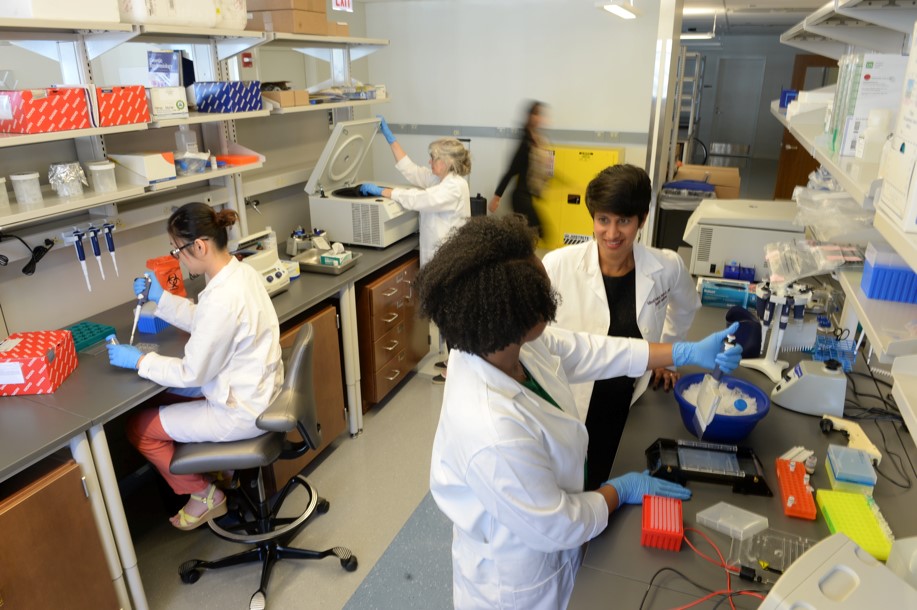Researchers find genetic variants linked to dangerous blood clots in African Americans
If you develop a blood clot in a vein, known as venous thromboembolism (VTE), your doctor might recommend getting a genetic test. If a genetic variant that increases your risk for the disease is found, the doctor can make better decisions on how to prevent future clots from forming. This includes suggesting lifestyle changes or blood thinning drugs at certain times, like during surgery or after giving birth.
But if you're African American, the genetic tests won't tell your doctor much. That's because they were developed from studies with mostly White people—and the genetic variants they test for are very rare in people of African descent. A genetic predictor for VTE is especially important for African Americans, since they are more likely than Whites to develop blood clots in the lung, which is a life-threatening form of VTE.

Researchers have examined the DNA of African Americans and found three new genetic variants that predict whether African Americans are likely to get VTE. This NIMHD-supported study was published earlier this year in the journal Blood. No one had looked specifically at this population before, says Dr. Minoli Perera, associate professor at Northwestern University.
Dr. Perera and co-study investigators at George Washington University, the University of Florida, and the Veterans Affairs Medical Center in Washington, D.C., took blood or saliva from African Americans with and without VTE. The researchers compared the DNA sequences, looking for places where there were consistent differences. Three genetic variants were more common in African Americans with VTE. In fact, having any of the three variants more than doubled a person's likelihood of having the disease. These genetic variants are not commonly found in other racial or ethnic groups, which explains why previous studies didn't link them to VTE.

The three variants are located near the gene for a protein called thrombomodulin, which helps prevent clots from forming. Based on information from databases that link the variant to the thrombomodulin gene, Dr. Perera thinks the variants she found decrease the amount of thrombomodulin, making blood clots more likely to form. "It is a story that lines up nicely," says Dr. Perera.
The results could help researchers understand why African Americans are at higher risk for VTE. It could also lead to a genetic test to identify African Americans at higher risk of developing VTE.
Dr. Perera cautions that this study was done in people who already had venous thromboembolism. Before her results can be used in a genetic test for patients, researchers need to show that healthy people who have the variant are more likely to develop the disease in the future. Researchers also need to show that identifying people who have the variants and treating them with blood-thinning drugs or closely monitoring for the first signs of leg swelling will help prevent the disease.
In the meantime, the study highlights how much there is to learn about genetic variants in African Americans.
"If we don't look in African Americans for genetic variants that are specific to them, we'll continue to use the incorrect tests," says Dr. Perera.
The use of genetic tests to guide prevention or treatment decisions, known as precision medicine, has increased rapidly in recent years. But many of the tests do not apply to minorities. Doctors often have to rely on traditional approaches that are not as effective or safe when treating African Americans.
Dr. Perera has several NIMHD-funded studies that she hopes will extend the promise of precision medicine to African Americans.
"[African Americans] were left behind and they were never going to be able to benefit from the advances in precision medicine," says Dr. Perera. "That just seemed profoundly unfair."
References
- Hernandez, W., Gamazon, E. R., Smithberger, E., O'Brien, T. J., Harralson, A. F., Tuck, M., Barbour, A., . . . Perera, M. A. (2016). Novel genetic predictors of venous thromboembolism risk in African Americans. Blood, 127(15): 1923-1929. doi: 10.1182/blood-2015-09-668525.
Posted December 18, 2016

















